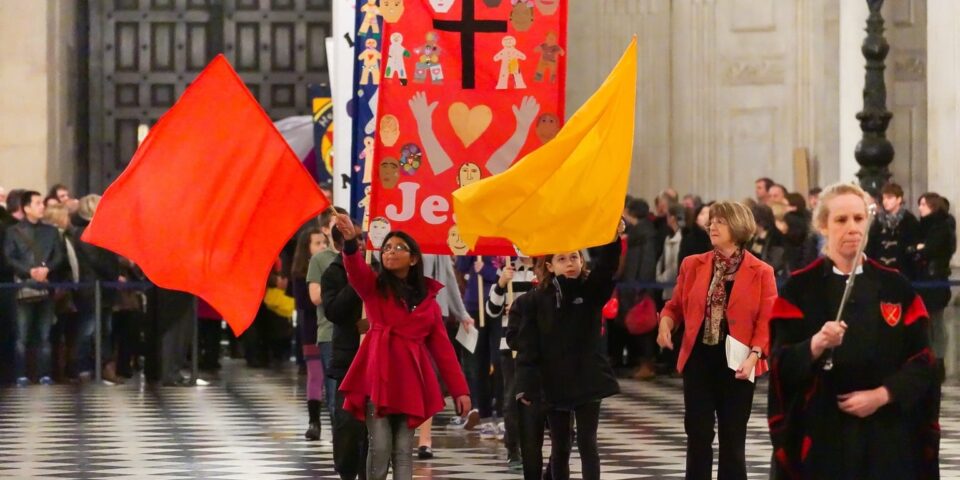Messy Church has now been going for ten years, so perhaps it’s time to ask some serious questions. Is this just another fad to hit children’s work or is something more fundamental taking place in churches and our ministry among children? What are the implications of the growth of Messy Church for our work on Sunday? Is Messy Church really church and, if so, how can children come to faith and grow in this all-age context? Won’t Messy Church teams just run out of steam in the end and families simply drift away once their children ‘graduate’ from primary school? Can a Messy Church really be both a missional and a disciple-making community at the same time?
Messy Church certainly has a knack of raising as many questions as it answers. Many of these are questions for the future of the whole church. The BRF Messy Church team, of which I am a part, is the first to admit that we do not have all the answers. We don’t claim to be offering a neat, pre-packaged and thoroughly thought-through movement in mission for the church. We’re constantly surprised by where God’s Spirit is taking us and those churches we’re trying to support. It wouldn’t be too much of an exaggeration to say that it sometimes has the feel of the 1st Century church. Those first apostles too were often shocked by where God’s Spirit took them and by the new thinking they had to take on board as the church grew among people ‘not like themselves’.
The interesting significant element of Messy Church has surely been its insistence that it should be an all-age church community. This intergenerational style of church has come at a time when many leading thinkers in children’s and youth ministry are moving away from the received wisdom that children and young people need to be nurtured separately, apart from the adult congregation. Insights from Sticky Faith and the writings of John Westerhoff find a home in Messy Church, where adults, teenagers and children are encouraged to mix around the activities, during the celebration and across the meal table. Passing on our faith from one generation to another needs this sort of context, just as within the Jewish tradition the extended family comes together around the Sabbath meal or during the great festival times as they remember how God rescued and protected his people.
Messy Church is most definitely not just for children. One of the reasons why it has been so successful is that it has allowed adults and young people to have a voice and a contribution in the work of mission. A missional church is a healthy church and a disciple-making church will always need to remain missional. Messy Church is held together not by a particular template of how to do it but rather a set of robust values that keep it fresh and healthy. Messy Church practises a radical hospitality that can welcome not just young adults with children but single adults too.
There’s no doubt that what began as an experiment to reach new families has taken on surprising and exciting possibilities for the growth of the kingdom of God in our generation. It will always raise questions and debate among theologians as well as longstanding members of our congregations, but what can’t be denied is that many people are being drawn closer to God through their participation in Messy Church. It may be a slow disciple-making process, because we are starting with at least two generations of adults and children who have never heard the Christian story and have no foundations to build on. Nevertheless it is a discipleship journey both for those who come to Messy Church and those who are on the team. People are moving from a place of suspicion and fear when it comes to the Christian faith, to a recognition that God is at work today in the lives of ordinary people; people, who have had their lives turned upside down by an encounter with Jesus Christ.
Martyn Payne is part of BRF’s Messy Church team and assists the Diocese in supporting Messy Churches throughout London.
